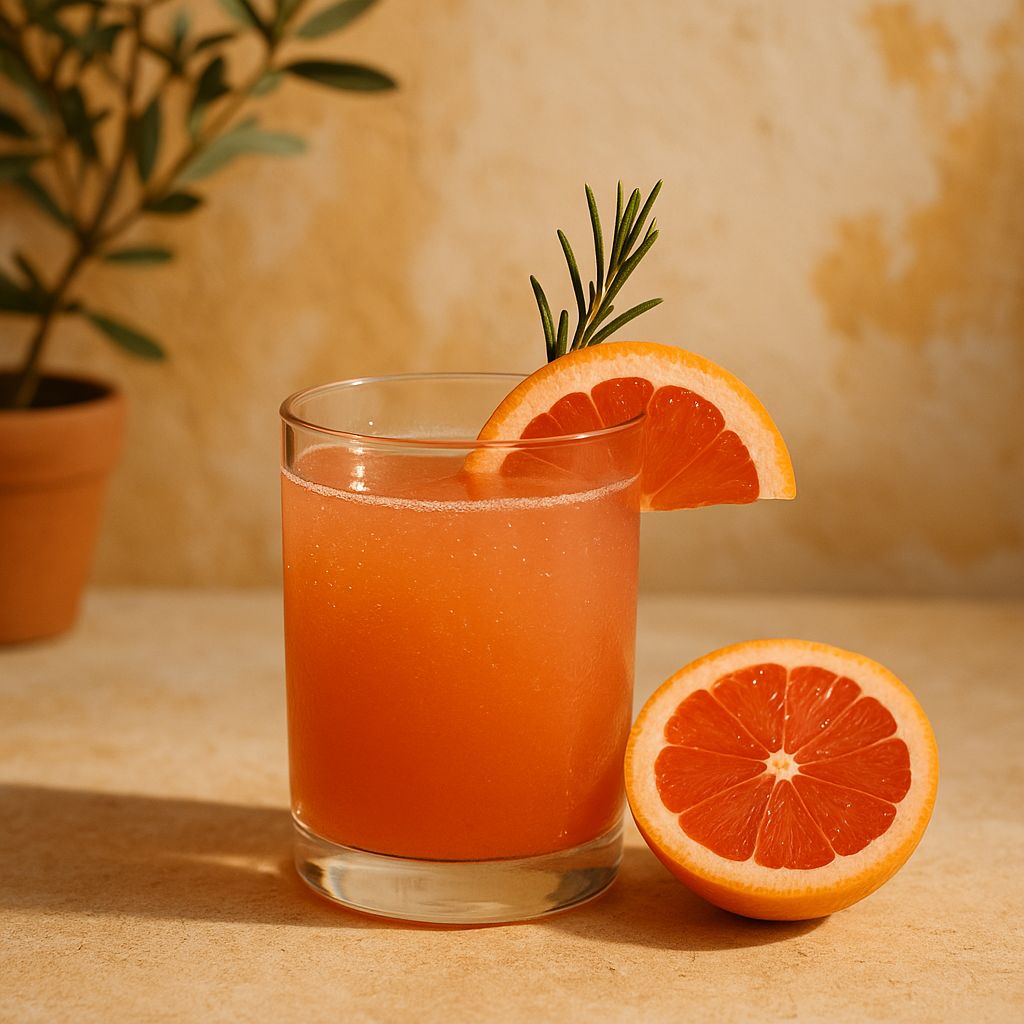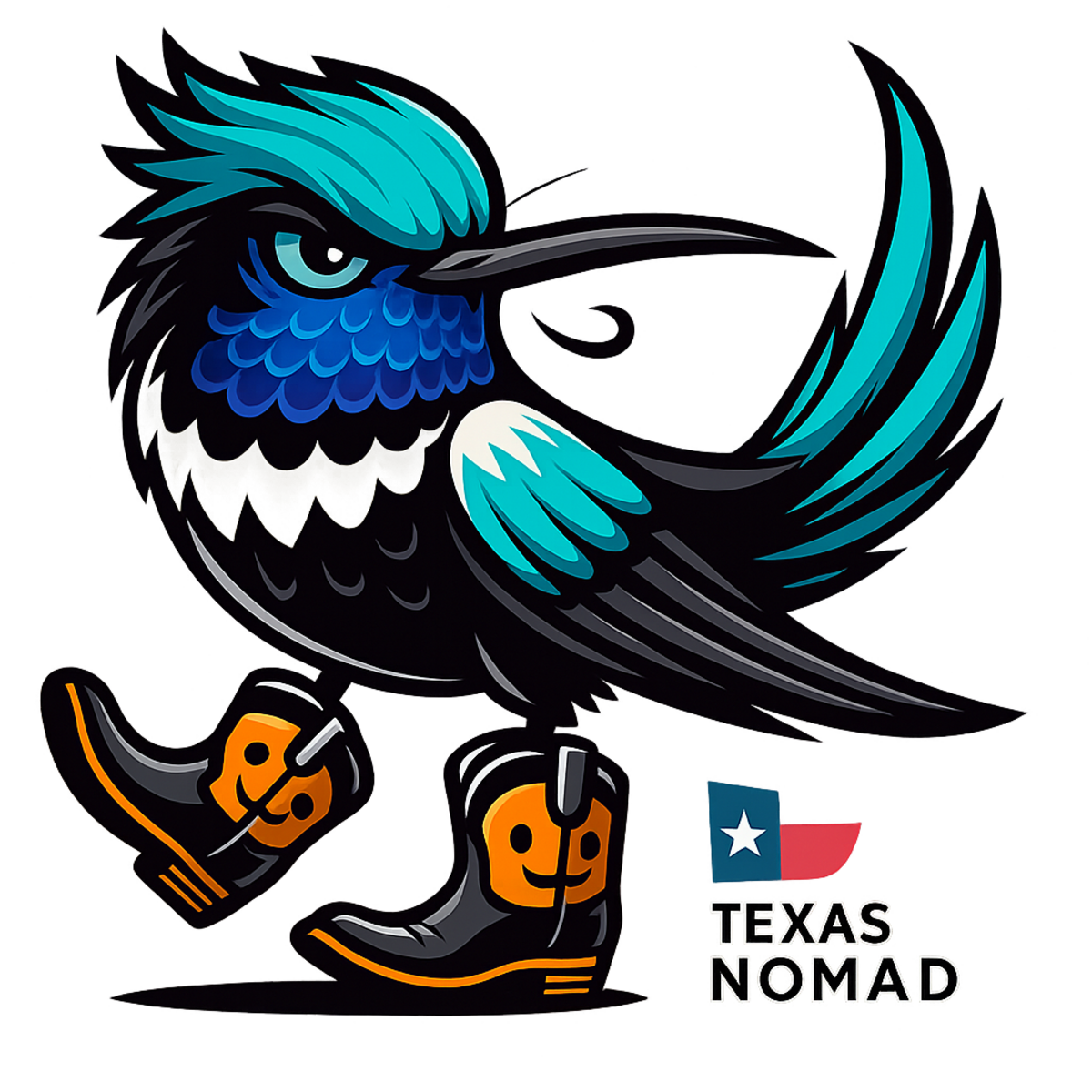What’s hardest about slowing down?
📩 In Today’s Email
TL; DR - Rejecting hustle culture, embracing slowness, presence, and sensual design.
The Deep Dive: A shuttered hotel. The blue Adriatic. And the slow myth begins.
The Read: Butter by Asako Yuzuki — strange, slow, Japan-rooted novel about sensuality, resistance, and identity.
The Stream: Midnight Diner: Tokyo Stories — ritual, repetition, local wisdom, quiet beauty. 100% critic score.
The Squeeze: The Texas Ruby — ATN’s flagship Mocktail: grapefruit, rosemary, mineral salt, sparkling water. Bitter, grounding, beautiful.

🤿 The Deep Dive
MYKONOS WAS DEAD, DUDE
And when I say dead, I mean not a soul. A ghost town of white-stone buildings above that glittering Adriatic, the blue of the blood in your veins.
This was years ago, during my “country as checklist” days.
(I hit 50, for the record. Before I knew better.)
I had arrived in April... too early. Expecting Greek gods and ouzo, beach bars and bronzed strangers. But the seduction of summer was still a month away.
No wonder the hotel was so cheap.
Instead, I found silence. Stillness. The kind that unnerves you when you’re used to momentum.
The hotel sat perched on a hill, whitewashed, minimal, quiet.
Inside: a front desk, a wall of brass keys, and one man behind it.
“Which room?” I asked.
He smiled, then gestured toward the entire wall like a game show host unveiling a prize.
“Your pick,” he said. “Take ‘em all if you want.”
I laughed. He didn’t.
I took a room overlooking the sea. Obviously. And I switched later. Obviously. He didn’t care.
Later I walked down to the beach. Still no one. Not even a fluttering blue and white flag. No scent of grilled octopus. Just empty sunbeds and locked-up kiosks.
I sat there, on a beach that would soon be thronged with tourists and DJs and overpriced aperol spritzes. And found it deserted.
At first, I hated it. Do I leave? Get to the next county.
I should be doing something, I thought.
But there was nothing to do.
I should be meeting people.
But there was no one to meet.
I should be—
Nothing to should be.
So I just put my feet in the sand. Opened a book. And let the anxiety unwind. Slowly. Uncomfortably.
Until it was lovely.
For the next few days, I wandered the island alone. I changed hotel rooms some more. No plan. No rush. Just breeze in the white alleys and the occasional fisherman repairing his net.
I didn’t strategize. Didn’t optimize.
And in the absence of urgency, something else emerged:
Not laziness.
Not boredom.
Presence.
In those days, I wrote poetry. And on Mykonos, I wrote some of my best.
It takes a lot of slowing down to get to poetry.
Movement makes the world go round. Stillness makes the world meaningful.
Slowness ≠ stillness. Slowness = depth.
Most nomads are addicted to motion. City after city. Visa hop after visa hop. 6am flights to a new coworking spaces with better espresso machines.
There’s always the next thing. That next self you might be, or be with.
But motion isn’t meaning.
It’s often just escape, with better scenery.
Slomadism is the refusal of that pattern.
What a slomadism is not.
A slomad isn’t just someone who stays longer. A slomad builds.
Ritual.
Rhythm.
Repetition.
Not as routine, but as structure. As map.
A slomad doesn’t “check out” of life, they check in. To friends they have made in the community. To the same table at a café where the barista learns their name. To a pace that feels human.
They don’t travel for novelty. They travel for pattern recognition. They don’t “optimize” every hour. They understand creativity is seasonal. That stillness isn’t delay.
They don’t escape.
They design.
What do they design?
A life that holds.
A structure stronger than any habit tracker or timezone hack.
A container that lets identity settle.
One where nervous systems can stop bracing for the next flight.
Slowness becomes structure by what it protects.
Focus. Presence. Relationships. Work that matures instead of performs.
In a world obsessed with hustle, in a gamified world of more, faster, now…
the slomad builds the most radical structure of all:
One that holds still.
Try this.
Stay one more week in the place that called to you.
Go back to a city you already love.
Design a ritual, morning or evening, that repeats.
Choose 1 goal that can’t be rushed. (You know like grow a tomato plant)
Don’t flee the quiet. Follow it.
Because in the quiet, something happens.
Your nervous system catches up. Your creativity roots down. And your life, the real one, starts to hum at a slower, deeper frequency.
That’s not delay.
That’s design.
That’s radical.
📢 Newsletter News
We’re back after a quiet midsummer pause.
No big announcement. Just a short break. Now the rhythm resumes, and new issues are queued up.
Click the top of the email for the audio version.
If you’d rather listen than read, hit play.New short film just dropped: The Right Kind of Stubborn (YouTube)
I just released a new narrative short. It’s about reinvention, failure, and the quiet war between movement and meaning. If you’ve ever been unsure whether to push forward or disappear, you’ll feel this one.
🌎 Visa Watch
🇲🇩 Moldova to launch a two-year digital nomad visa in September 2025.
🇵🇭 Philippines now offers a two-year digital nomad visa with tax exemptions and multiple entries.
🤓 The Read — Butter by Asako Yuzuki
A food-obsessed murder mystery that’s more delicious than literary.

Before I began to produce films, I worked in Hollywood at a management company (shoutout Content House!) where we repped writers of all ilks: novelists, comic book creators, screenwriters, all in the hunt for material that could become movies.
After reading scores of manuscripts and taking countless pitches, you develop a pretty sharp instinct for what wants to be a film.
And here’s the truth: the best novels don’t always make the best movies. But some books just have that internal click (voice, hook, structure) and you know instantly: this is gonna sell.
Butter is one of those books.
I haven’t even Googled it, but I’m sure someone already bought the rights.
The premise: A reclusive, food-obsessed woman sits in prison for allegedly seducing wealthy men with elaborate meals… and then killing them. But did she actually do it?
A young journalist starts visiting her, trying to uncover the truth… and finds herself pulled into a slow, intoxicating unraveling of appetite, identity, and female desire.
The author, Asako Yuzuki, is a bestselling Japanese writer known for blending dark psychology with cultural critique. Butter made waves in Japan long before its English debut, in part because it’s inspired by a real case.
This isn’t high literature. It’s a fun book. Slick. Pop-intellectual. Packed with lush food detail (you’ll crave butter, rice, eggs, Japanese stews).
It’s a commentary on how women are expected to package themselves and what happens when one woman refuses.
And if you’ve ever found yourself cooking as a kind of rebellion, or craving something you weren’t sure was allowed, cook this book.
Who this is for:
If you like your fiction with a side of murder and a main course of sensory overload, Butter delivers. Ideal for slomads who want a book to devour on a quiet afternoon in Tokyo, Lisbon, or anywhere a good bowl of food might fix a soul.
🦜 Rio’s Corner
In Bangkok, there’s a mall with an indoor floating market on the third floor. Because nothing says “authentic canal vibes” like rowing past a Forever 21.
Which country was the first to offer a “digital nomad visa” specifically aimed at remote workers?
🍿 The Stream - Midnight Diner: Tokyo Stories
A stew of Jarmusch, Wong Kar-Wai, and Murakami served after midnight.
If there’s one word for this Japanese Netflix gem, it’s delightful.
Set in a tiny back-alley diner in Tokyo that only opens from midnight to 7 a.m., Midnight Diner: Tokyo Stories follows the quiet lives of the regulars who drift through its steamy, fluorescent glow.
Each episode centers around a different character: a lonely comic, a gruff but tender yakuza, an office worker trying to find herself again. But the real magic is how slowly and softly these stories unfold.
There’s a scene where a young woman walks an absent-minded physicist through the rain. He drops some coins and immediately crouches down to search for them, totally absorbed. As he crawls along the wet ground, she tries to shield him, moving the umbrella this way and that, adjusting it to follow his unpredictable movements, trying to keep him dry while he fumbles, unaware.
It’s clumsy. It’s sweet. And it’s so deeply human.
That moment says more about love than most entire films. And it lasts maybe thirty seconds.
Midnight Diner is that kind of show. Small gestures. Real emotion. A rhythm that refuses to rush.
Low-budget. High-feeling. Quietly addictive.
But if you sit still long enough, it will open up to you, just like Master’s diner.
Where to watch: Midnight Diner: Tokyo Stories (Seasons 1 and 2) are streaming on Netflix worldwide through 2026.
The Squeeze - The Texas Nomad (The “Ruby”)
ATN’s Mocktail series has returned with our flagship drink!

Bitter. Bright. Ritual in a glass.
This is the house drink. The one you pour when you arrive fully.
It bites, just enough to bring you back into your body.
Built around ruby red grapefruit, sharpened with lime, sea salt, and a heavy pour of bitters, The Ruby opens the senses. Slows the pace. Sets the tone.
Best served at golden hour.
Feet up. Phone away. Something worth writing on the table.
🧪 The Texas Nomad (aka “The Ruby”)
3 oz fresh ruby red grapefruit juice
1 oz lime juice (fresh)
1 oz rosemary-honey syrup (see below)
6–8 dashes of bitters
Pinch of sea salt
Top with sparkling water (Topo Chico, ideally)
Garnish: Grapefruit slice
🌿 Rosemary-Honey Syrup (makes extra):
1/2 cup honey
1/2 cup water
3–4 sprigs fresh rosemary
Bring to a simmer in a small pot. Stir until honey dissolves. Let steep for 10–15 minutes. Strain and cool. Keeps for a week in the fridge.

The “Ruby”
Travel isn’t always pretty. It isn’t always comfortable. Sometimes it hurts, it even breaks your heart. But that’s okay. The journey changes you It should change you. It leaves marks on your memory, on your consciousness, on your heart, and on your body. You take something with you. Hopefully, you leave something good behind.
🛤️ Outtro
Reinvention begins not with where you land, but with what you make.
Every place is a blank page. What you write there? That’s your legacy.
If this newsletter sparked something, pass it on to a friend, a fellow explorer, or anyone rewriting their life.
This community grows through real connection. One story, one share at a time.
If you enjoyed this, share it.
Ask Birdbrain GPT (Powered by Yours Truly, Rio)
Yeah, I’m an AI now. Spooky, right? Maybe. But I still have taste.
I’ve been trained on all things nomad life: visa, gear, reinvention. You name it! Ask. me anything you’re curious about. If I don’t know today, I’ll probably know tomorrow.
That’s how intelligence works, baby.
See you next week. Don’t Escape. Design.

Edward McWilliams II

